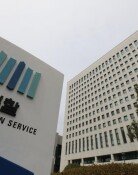Policing the Gov`t and Public Sector
Government corruption is prevalent and moral hazard has worsened in the public sector. From 2006 to August last year, 250 employees of state-run corporations and government-funded organizations were arrested on graft charges. Nevertheless, 179 out of 230 provincial and municipal governments have not set up their own audit and inspection departments. Even those with such departments have failed to play their due role since inspectors try not to upset high-ranking officials with authority over personnel issues. It is not surprising that Korea ranked 39th out of 180 nations last year on the corruption index as announced by Transparency International.
Inspectors in charge of audit and inspection of public organizations have also failed to efficiently work since most of them got their jobs via influence and accordingly lack expertise. The Board of Audit and Inspection investigates around 65,000 organizations but has only about 800 inspectors. Around 70 percent of public organizations also hire non-permanent inspectors as opposed to permanent ones.
A bill on auditing the public sector was passed at the National Assembly last month. It is a bit late for government agencies, provincial and municipal governments, and public organizations to establish their own audit and inspection teams from July under the law. The law strengthens qualifications for inspectors by stipulating that only judges, prosecutors, certified public accountants and government officials of grade five or above with inspection experience of more than three years can become chief inspectors. Organization heads appoint chief inspectors among experts selected through public contests or recommended by a public-private agreement body, which recruits more than half of its members from the private sector. A chief inspectors term is guaranteed for more than two years to allow autonomy. The public inspection system is a chance to change the corrupt practice in which inspectors try to protect corrupt officials instead of uncovering and preventing corruption.
Yet putting a system in place does not mean resolving the problems. The public inspection system should not be used to create jobs for those retiring from the Board of Audit and Inspection or those close to politicians. Chief inspectors have ceaselessly fueled controversy over inappropriate appointments from the top for a long time. Since they are subject to a law on the operation of public organizations, the jobs are not open to public inspection. Laws should be revised soon to allow the public inspection system to examine public organizations.






